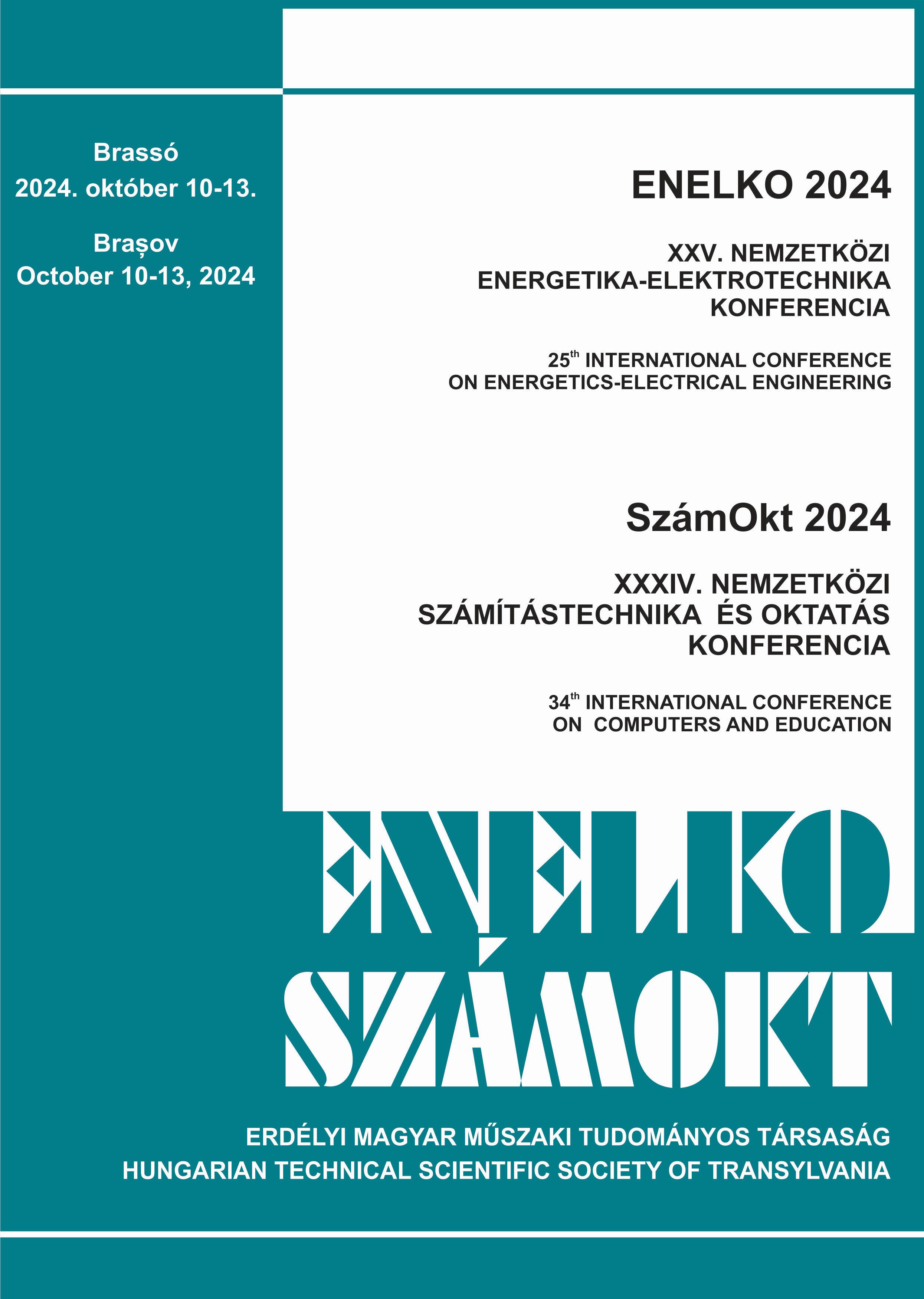A kognitív képességek és számítógépes gondolkodás szerepe az elsőéves STEM hallgatók teljesítményében: Három teszt összehasonlító elemzése
The role of cognitive abilities and computational thinking in the performance of first-year STEM students: A comparative analysis of three tests
Keywords:
cognitive abilities, fluid intelligence, computational thinking, STEM students, academic performance, /, kognitív képességek, folyékony intelligencia, számítógépes gondolkodás, STEM hallgatók, akadémiai teljesítményAbstract
The study aims to examine the cognitive abilities and computational thinking skills of first-year STEM students using three different tests: the Cognitive Aptitude Test (CAt), the Raven's Progressive Matrices Test (RPMt), and the Computational Thinking Test (CTt). The research explores how these abilities are interrelated and how they may predict students' academic performance in STEM fields.
Kivonat
A tanulmány célja az elsőéves STEM hallgatók kognitív képességeinek és számítógépes gondolkodásának vizsgálata három különböző teszt segítségével: a Kognitív Alkalmassági Teszt (CAt), a Raven-féle Progresszív Mátrix Teszt (RPMt) és a Számítógépes Gondolkodási Teszt (CTt). A kutatás során arra kerestük a választ, hogy ezek a képességek milyen összefüggésben állnak egymással, és hogyan jelezhetik előre a hallgatók tanulmányi teljesítményét a STEM területeken.
References
Navy, S. L., Kaya, F., Boone, B., Brewster, C., Calvelage, K., Ferdous, T., ... & Zimmerman, M. (2021). “Beyond an acronym, STEM is…”: Perceptions of STEM. School Science and Mathematics, 121(1), 36-45.
Wang, C., Shen, J., & Chao, J. (2022). Integrating computational thinking in STEM education: A literature review. International Journal of Science and Mathematics Education, 20(8), 1949-1972.
Woods, S. A., & Patterson, F. (2024). A critical review of the use of cognitive ability testing for selection into graduate and higher professional occupations. Journal of Occupational and Organizational Psychology, 97(1), 253-272.
Zhong, M., Yeung, E. K. L., Siu, C. T. S., Chan, M. H., & Cheung, H. (2023). Mental processes underlying STEM problem solving in exceptional and typically developing children. Available at SSRN 4789715.
Román-González, M., Pérez-González, J. C., Moreno-León, J., & Robles, G. (2018). Can computational talent be detected? Predictive validity of the Computational Thinking Test. International Journal of Child-Computer Interaction, 18, 47-58.
Kaplan, R. M., & Saccuzzo, D. P. (2009). Standardized tests in education, civil service, and the military. Psychological testing: Principles, applications, and, 7, 325-327.
Bilker, W. B., Hansen, J. A., Brensinger, C. M., Richard, J., Gur, R. E., & Gur, R. C. (2012). Development of abbreviated nine-item forms of the Raven’s standard progressive matrices test. Assessment, 19(3), 354-369.
Schneider, W. J., & McGrew, K. S. (2018). The Cattell-Horn-Carroll theory of cognitive abilities. Contemporary intellectual assessment: Theories, tests, and issues, 73-163.
Piaget, J. (2000). Piaget’s theory of cognitive development. Childhood cognitive development: The essential readings, 2(7), 33-47.
CriteriaCorp, https://www.criteriacorp.com/assess/cognitive-aptitude





